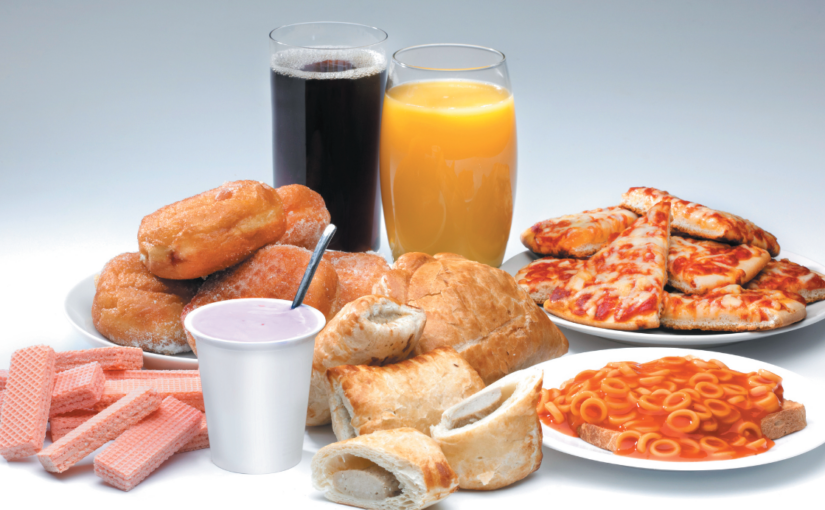Recently, a study from Imperial School of Public Health (SPH) has been in the news1. The findings suggest a link between higher consumption of ultra-processed foods and developing cancer. As with many articles about research, it’s important to read beyond the headline and do so carefully.
In my role as an Ovarian Cancer Counselor and Director of Education at Clearity, I speak to people who have been personally impacted by ovarian cancer. In our conversations, many have voiced a secret concern asking, “What did I do to cause this cancer?” Or they have talked about reading research findings that report on individual behaviors similar to their own, and how that has brought on personal feelings of fear, guilt or shame. In addition, people frequently ask, “Why me?” and look for causes of their diagnosis.
To address these concerns, and to understand causes of cancer in terms of research, it’s important to know the difference between types of research and their results. In this case, it is important to know that observational studies do not confirm that the associations identified indicate cause-and-effect relationships.
In other words, an observational study is different than an experimental study, i.e., a randomized controlled trial. Imperial’s SPH observational study looked at interactions between ultra-processed foods and an increased risk of cancer, but it was not an experimental study that found ultra-processed foods cause cancer.
So, rather than viewing this observational research on ultra-processed food as a reason to feel guilty if you ate a packaged breakfast cereal or had a “fizzy drink,” I suggest taking away three different and more helpful points instead.
1) The first is to recognize this difference between finding a link (observation) and finding that one thing is the cause of the other (causation).
Cancer is very complicated and involves genetics, lifestyle, environmental exposure and many other factors potentially impacting any one person’s individual risk of cancer. While many studies have shown connections, research on most types of cancers has been unable to find any one cause even though it is a common and natural response for individuals to look for one.2
In an article in EurekAlert, Dr Eszter Vamos, senior author, of the Imperial SPH study, makes the distinction between a link and a cause and advocates for more research: “Although our study cannot prove causation, other available evidence shows that reducing ultra-processed foods in our diet could provide important health benefits. Further research is needed to confirm these findings and understand the best public health strategies to reduce the widespread presence and harms of ultra-processed foods in our diet.”3
2) The second point is the opportunity to better understand how prevalent ultra-processed foods are.
As discussed in the EurekAlert article, ultra-processed foods are often relatively cheap, convenient, and heavily marketed, often as healthy options, but are linked to a range of health issues including obesity, type 2 diabetes, and cardiovascular disease. Despite this evidence and previous research reporting high levels of consumption, Dr. Kiara Chang, first author of the Imperial SPH study, said, “ultra-processed foods are everywhere and highly marketed with cheap price and attractive packaging to promote consumption.” Awareness of ultra-processed foods and how prevalent they are in the marketplace can help us reduce over-consumption and maintain balance with healthier fresh foods.
3) The third point is to know that there are things we can do to lessen the potential harmful impacts of diet on our health.4
I often recommend people meet with a Registered Dietician Nutritionist (RDN) who is also a Board Certified Specialist in Oncology Nutrition (CSO).5 An RDN-CSO is trained in evidence-based approaches to diet and nutrition and can also make individual recommendations to promote health and wellness during and after cancer treatment. Where available, physicians may refer patients to nutritional counseling or medical nutrition therapy, and the service may even be covered by insurance. While it may not be realistic to completely avoid ultra-processed foods, more education about how to prepare and eat fresh foods and ways to improve nutritional intake are generally positive steps toward better health. I included an online resource at the end of this article with helpful nutritional information and recipes6.
When I speak to my participants about their ovarian cancer experience, they often feel overwhelmed and out of control. It can be helpful to find areas in their lives where they do have control and discuss, what, if any, changes they’d like to see. Changes in diet often are a common example where small changes can be made over time and have a positive impact both physically and emotionally.
Susan Hess, MA, LPC
Clearity’s Director of Education
References
- 1 Kiang C et al. Ultra-processed food consumption, cancer risk and cancer mortality: a large-scale prospective analysis within the UK Biobank. Eclinical Medicine (2023) 56:101840 https://www.thelancet.com/journals/eclinm/article/PIIS2589-5370(23)00017-2/fulltext
- 2 National Cancer Institute (NCI): Risk Factors for Cancer. https://www.cancer.gov/about-cancer/causes-prevention/risk
- 3 Ultra-processed foods may be linked to increased risk of cancer, EurekAlert, 1/31/2023, https://www.eurekalert.org/news-releases/978091
- 4 National Cancer Institute (NCI): Risk Factors-Diet. https://www.cancer.gov/about-cancer/causes-prevention/risk/diet
- 5 Oncology Nutrition: https://www.oncologynutrition.org/get-involved/certification-cso-general-information
- 6 https://www.cookforyourlife.org
This article was published by: Medical News Today


